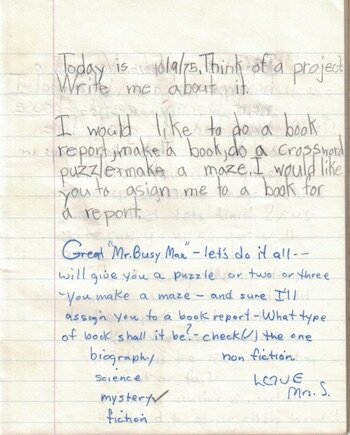Everybody (ok not everybody) will say nah, don’t.
It’s no longer the done thing. But it used to be.
Back in the late 1990’s, I started to begin to think about possibly becoming a writer. I was already performing regularly as a comedian, so I signed up for a sitcom writing class. The teacher told us the way to get a job as a sitcom writer was to write a really good script for a show that was already on TV (you had to write this without getting paid, while “speculating” that it would lead to getting paid, so it was called a “spec script”), show it to “people who could hire you,” (good luck finding them and getting them to look at it btw, but that will be in another post) then when they liked it they would give you a job. Boom! Just like that you work in TV.
The teacher was great. He’s still one of my favorite people- he took me to lunch at an amazing Chinese restaurant on St. Mark’s Place when I was in New York City for Christmas last year, and got us, among other things, soup dumplings, which were not what I thought they would be but were… well, they were amazing. But I was not (great, or even amazing). I wrote several scripts for shows that were on at that time- a Frasier (a lot of people wrote Frasiers), a Friends (everybody wrote Friends back then), a Drew Carey Show (nobody but me ever wrote a Drew Carey- oh, that Mimi! ANd Mr. Wick!)... A couple of others. None of them felt to me like they were good enough to get me a job. Eventually, I wrote a Curb Your Enthusiasm (nobody writes those, not even Larry David- it’s all improvised, right?). I liked it. Turns out, so did some other people(Yeah, I found them and got them to look at it). I got my first sitcom writing job! Which, of course, was when I actually learned how to write sitcoms.
Now, this next thing might be encouraging, or discouraging, depending on how you look at it, but doing all that took me about five years. To be fair to me, I did lots of other stuff during that time (started stand-up, did Conan, did a one-man show that went to the HBO Comedy Festival in Aspen, failed at a number of relationships, had major health problems, recovered, spent some time in the joint, invented a mattress designed specifically for pregnant women so they could sleep on their stomachs, trained extensively with Cirque d’Soleil, ran 74 marathons, learned to fib, and eventually moved to LA). Becoming a TV writer is not easy, and if it’s what you want, you could probably focus a lot harder than I did. But that’s me, always has been.
I blame my 3rd grade teacher for my lack of focus.
Anyway, by the time I got my job with a Curb script, conventional wisdom had started to shift. Instead of writing scripts for existing shows, aspiring writers were supposed to write original pilots. I don’t know enough about Hollywood to know exactly why, and anybody you talk to will tell you something different, but I suspect that one problem was, people got sick of reading Friends and Seinfelds, and probably Frasiers too ( I bet nobody ever got sick of reading Drew Careys). Another problem was, agents (those goddam smart motherfuckers) realized that if their clients wrote specs for existing shows, they would be hired for existing shows, at writing-for-existing-show salaries. BUT if their clients wrote original pilots, they could still maybe get hired for existing shows, but ALSO they could possibly sell THAT pilot, and run it! Not always, or often, or even sometimes, but occasionally (Google Marc Cherry Desperate Housewives – that was a big one that happened right around that time). And that would be a LOT more money to the writer, hence a much bigger commission to the agent. So, why not roll the dice?
I’ve been through a number of hiring periods where I was one of the people responsible for reading people’s scripts, and deciding whether or not to have them in for interviews. So I’ve read a lot of original pilots. Trust- they’re fucking hard to write. You have to do so much work to get the world view and the characters and the places and the themes and the future potential into your reader’s head: what the show is, can be, and is going to be. You also have to tell a clear, fun, funny (if it’s a sitcom), compelling story...
I’ve read a lot of really bad original pilot writing samples. Like, so many. That doesn’t mean the people who wrote them (let’s call them the writers) were bad people, or even bad at writing. Writing is hard (I mean, not for me of course, but Hemingway killed himself). But I’ve also read some great ones, and hired those people. And I know a few brand new writers who’ve sold their originals.
I still think writing a spec script for an existing show is a great idea. Here are some reasons:
1) There are so many variables to deal with in writing an original pilot- what’s the world? Who are the characters? What’s interesting about them? How do they talk? Who makes what jokes? What do each of the characters want? How do they relate to each other? What kind of stories does the show tell? And THEN, on top of all that, you have to tell a good story. If you write for an existing show, a lot of those variables are already taken care of. As far as degree of difficulty, it’s like solving a problem in algebra versus solving a problem in calculus- I can probably eventually determine the derivative of the given function, but it’s gonna take way more work than just solving for x. Let me practice a little first.
I think it’s 6.
2) If you are hired to write for a show, you will be required to write for characters you haven’t created, who each have their own voice. Writing a spec for an existing show is a great way to learn how to write for other people’s characters. You can also show that you understand what kind of stories the show is trying to tell, which is a great way to demonstrate to me (or whoever’s hiring you) that you have an understanding of how stories work.
3) There are lots of writing fellowships available to aspiring writers. Some want spec pilots. Others have a list of approved existing shows they want you to spec.
4) It’s fun! There’s a definite puppetmaster aspect to writing for an existing show you love- you get to put characters you already know (and love- you’re obviously gonna write a show you love, right?) in a situation you dreamed up, and see and hear them saying and doing stuff you’ve always wanted to see them say and do, that you wrote. I mean, not actually see them, but in your mind’s eye. I can still remember moments, years and years ago, when I was writing these things, then reading it back to myself, and realizing “Holy shit! That really does sound exactly like something the one broke girl would say to the other broke girl! “
5) Mindy Kaling says you should.
Needless to say, I don’t even know if Mindy still feels this way (I don’t really know Mindy), and I wouldn’t hold it against her if she’s changed her mind, but I thought she made some good poinst, and if you’re interested, check out the respones she got. Twitter dialogues are always productive!
So there you go. Now get out there and write, write, write your spec script for an existing show. And if you’re thinking of writing a Drew Carey, I have some ideas...


